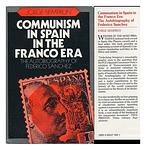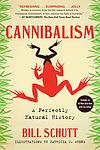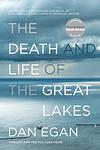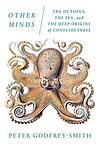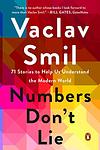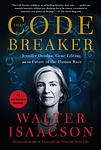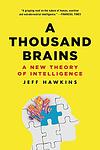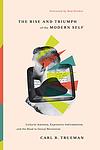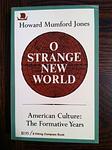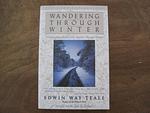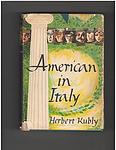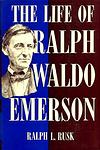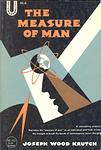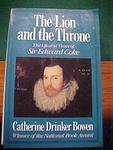The Greatest "Nonfiction" Books of All Time
Click to learn how this list is calculated.
This list represents a comprehensive and trusted collection of the greatest books. Developed through a specialized algorithm, it brings together 286 'best of' book lists to form a definitive guide to the world's most acclaimed books. For those interested in how these books are chosen, additional details can be found on the rankings page.
Genres
Countries
Date Range
Reading Statistics
Click the button below to see how many of these books you've read!
Download
If you're interested in downloading this list as a CSV file for use in a spreadsheet application, you can easily do so by clicking the button below. Please note that to ensure a manageable file size and faster download, the CSV will include details for only the first 500 books.
Download-
2576. Communism In Spain In The Franco Era by Jorge Semprún
This book provides an in-depth analysis of the communist movement within Spain during the rule of Francisco Franco, a period marked by authoritarianism and political repression. It delves into the complexities and challenges faced by communists who operated underground, striving to resist and eventually overthrow Franco's regime. Through a blend of historical documentation and personal narratives, the work sheds light on the ideological struggles, internal conflicts, and the broader impact of communism in Spain's fight for democracy and social justice. The narrative not only explores the political landscape of the era but also examines the human aspect of resistance, highlighting the resilience and sacrifices of those who fought against tyranny.
-
2577. Cannibalism by Bill Schutt
The book explores the natural history of cannibalism, the act of consuming individuals of the same species. It delves into the reasons behind cannibalistic behavior across various species, including humans, and challenges the taboo status of cannibalism in Western culture. By examining both the scientific aspects and the cultural perspectives, the book presents a comprehensive analysis of how and why cannibalism occurs in nature, revealing that it is often an adaptive strategy rather than a deviant behavior. The work also discusses the implications of cannibalism in terms of evolution and survival, providing a broad understanding of its role in the natural world.
-
2578. Astrophysics For People In A Hurry by Neil deGrasse Tyson
This book offers a concise and engaging overview of the fundamental concepts and discoveries in astrophysics. Aimed at busy readers who want to understand the universe but have limited time, it breaks down complex ideas about the cosmos into digestible pieces. Through a series of succinct chapters, the reader is taken on a journey through the scientific laws that govern the stars, planets, and galaxies, as well as the known and mysterious phenomena of the universe. The author's clear, witty style makes the vast and intricate subject of astrophysics accessible and enjoyable, providing insights into how the universe works and our place within it.
-
2579. The Death And Life Of The Great Lakes by Dan Egan
The book explores the ecological history of the Great Lakes and the environmental challenges they face. It delves into the impact of invasive species, pollution, and overfishing, which have dramatically altered the aquatic ecosystems and threatened the lakes' health. Through a blend of scientific research and investigative journalism, the narrative highlights both the human-induced problems and the ongoing efforts for restoration and protection. The book serves as a critical examination of the balance between human activity and environmental preservation, emphasizing the importance of sustainable practices to safeguard these vital freshwater resources.
-
2580. Other Minds by Peter Godfrey-Smith
This book delves into the fascinating world of cephalopods, particularly octopuses, squids, and cuttlefish, to explore the nature and origins of consciousness. The author, a distinguished philosopher of science and a skilled scuba diver, draws parallels between the development of the human mind and the intelligence of cephalopods, which evolved independently. Through a blend of scientific research, philosophical inquiry, and personal encounters with these enigmatic creatures, the book examines the profound implications of cephalopod consciousness for our understanding of the mind and the evolution of intelligence across different species.
-
2581. Rogue Heroes by Ben Macintyre
This book provides a gripping historical account of the formation and exploits of the Special Air Service (SAS), an elite British military unit created during World War II. It chronicles the daring and unconventional tactics of its founder and the brave men who joined its ranks, as they undertook perilous missions behind enemy lines in North Africa and Europe. Drawing on personal diaries, letters, and interviews, the narrative vividly brings to life the heroism, camaraderie, and ingenuity of the SAS, while also exploring the moral complexities of their wartime actions and the lasting impact of their contributions to modern special forces operations.
-
2582. Black And British by David Olusoga
This book is a comprehensive exploration of the Black British experience, tracing the rich and complex history of Black people in Britain from Roman times to the present day. It delves into the often overlooked contributions of Black Britons and examines the cultural, social, and political impacts of African and Caribbean communities in the UK. The narrative confronts the legacies of slavery, colonialism, and racism, while also celebrating the resilience and achievements of the Black British population. Through a blend of historical analysis, personal stories, and cultural commentary, the book provides a nuanced account of how Black history is inextricably interwoven with the broader British narrative.
-
2583. How To Avoid A Climate Disaster by Bill Gates Sr.
In "How to Avoid a Climate Disaster," the author presents a comprehensive and accessible exploration of the challenges and potential solutions to mitigate climate change. Drawing on his extensive experience in technology and philanthropy, he outlines the current state of global emissions and their impacts on the planet. The book emphasizes the importance of innovative technologies and government policies in transitioning to cleaner energy sources. It offers a pragmatic approach to reducing greenhouse gas emissions to zero by advocating for a combination of renewable energy adoption, carbon capture techniques, and advancements in agriculture and manufacturing. The author's insights aim to mobilize individuals, businesses, and policymakers towards urgent action to avert the catastrophic effects of climate change.
-
2584. Numbers Don't Lie by Vaclav Smil
In "Numbers Don't Lie," the author presents a compelling exploration of the essential statistics and facts that shape our understanding of the modern world. Through a series of insightful essays, the book delves into a wide range of topics, from energy and transportation to food production and environmental challenges. By analyzing data and debunking common misconceptions, the work offers readers a nuanced perspective on the complexities of technological advancement and its impacts on society. The author's rigorous approach to quantifying human progress and setbacks encourages a deeper appreciation for the role of empirical evidence in public discourse, making it a thought-provoking read for anyone interested in the interplay between science, technology, and culture.
-
2585. Play Nice But Win by Michael Dell
This book offers an insider's perspective on the high-stakes world of technology and business, chronicling the journey of a visionary entrepreneur who transformed a small startup from his dorm room into a global powerhouse. Through a blend of personal memoir and business strategy, the narrative delves into the challenges and triumphs faced in the competitive tech landscape, emphasizing the importance of innovation, leadership, and strategic decision-making. The author shares candid insights and behind-the-scenes stories of battles fought both in and out of the boardroom, advocating for a balanced approach to competition that combines fierce determination with ethical conduct. It serves as both an inspirational roadmap for aspiring entrepreneurs and a reflective look at the relentless pursuit of success in the ever-evolving tech industry.
-
2586. The Code Breaker by Walter Isaacson
This book delves into the life and groundbreaking work of Jennifer Doudna, a biochemist who played a pivotal role in the development of CRISPR, a revolutionary gene-editing technology. It chronicles her journey from her early days of fascination with the structure of RNA to her Nobel Prize-winning discovery that has opened new frontiers in genetic engineering. Through detailed storytelling, the narrative explores the ethical dilemmas and potential implications of gene editing, while also highlighting the collaborative and competitive world of scientific research. The book not only celebrates a monumental achievement in biotechnology but also prompts readers to ponder the future of human evolution.
-
2587. A Thousand Brains: A New Theory Of Intelligence by Jeff Hawkins
This book introduces a groundbreaking theory of intelligence, proposing a novel understanding of how the brain works. It challenges traditional models by suggesting that the brain operates not through a single engine of reasoning but through a network of many tiny brains working in parallel. Each of these "brains" is a specialized unit responsible for understanding the world through a specific lens. The author, a renowned figure in the field of neuroscience and artificial intelligence, combines the latest scientific research with accessible explanations to explore how this theory could not only revolutionize our understanding of human intelligence but also pave the way for more advanced and empathetic artificial intelligence systems. Through this lens, the book delves into the implications for how we learn, how we make decisions, and how we perceive the world around us.
-
2588. Hold Still: A Memoir With Photographs by Sally Mann
In "Hold Still: A Memoir With Photographs," the author delves into the rich tapestry of her life, intertwining personal narrative with evocative photography to explore themes of family, mortality, and the storied landscape of the American South. Through a collection of intimate snapshots, candid anecdotes, and unearthed family history, the memoir offers a profound reflection on the power of memory and artistry. It reveals the complexities of the author's relationships and her experiences as an artist, while confronting the controversies that have often surrounded her work. The book stands as a poignant testament to the enduring impact of heritage and the transformative nature of photography.
-
2589. Know My Name by Chanel Miller
The book is a powerful and transformative memoir by a young woman who reclaimed her identity after being known to the world as "Emily Doe" in a highly publicized sexual assault case. With unflinching honesty and profound eloquence, she shares her harrowing experience of trauma and the grueling path through the criminal justice system. Her narrative goes beyond the assault and its aftermath, delving into the societal attitudes toward sexual assault and the personal journey of healing and empowerment. Her story is a testament to resilience, a call to change the culture that shames survivors, and an inspiration for others to assert their own identity and tell their truth.
-
2590. Cultural Amnesia by Clive James
"Cultural Amnesia" is a sweeping collection of biographical essays that explore the lives, works, and philosophical contributions of more than 100 significant figures in the 20th century. Spanning various fields, including literature, music, philosophy, and politics, the book delves into how these individuals influenced modern thought and culture, often in the face of political turmoil and social change. Through a series of insightful and meticulously researched essays, the author weaves together the threads of what constitutes cultural memory, celebrating the resilience of human creativity and intellect against the backdrop of historical amnesia.
-
2591. The Language Instinct by Steven Pinker
The book explores the idea that humans are born with an innate capacity for language. It argues that the ability to learn language is a natural instinct, hard-wired into our brains by evolution. Drawing from research in various fields including linguistics, psychology, and anthropology, the book examines how children learn language, how languages develop and change over time, and how the mind constructs and understands language. The author challenges the notion that language is a cultural artifact and instead presents it as a biological adaptation that is essential for human survival and communication.
-
2592. The Faraway Nearby by Rebecca Solnit
"The Faraway Nearby" is a reflective exploration of the interconnectedness of the world, seen through the lens of the author's personal experiences and relationships. The book delves into themes of empathy, storytelling, and the human capacity for both kindness and cruelty, using the author's relationship with her mother and her struggle with illness as a poignant backdrop. The narrative weaves in and out of different topics and locations, from the Arctic to fairy tales, drawing insightful connections and offering a unique perspective on the human condition.
-
2593. The Rising Sun by John Toland
"The Rising Sun" provides an in-depth historical account of Japan during World War II from the perspective of the Japanese. The book explores the political and military events leading up to the war, the conduct of the war itself, and the aftermath, including the bombings of Hiroshima and Nagasaki. The narrative is based on interviews, diaries, memoirs, and letters of the people who lived through these events, offering a unique and comprehensive look at Japan's role in the war.
-
2594. O Strange New World by Howard Mumford Jones
"O Strange New World" is a historical account that explores the intellectual and cultural development of America from the time of the first settlers to the early 19th century. The author examines how the settlers' ideas of freedom, individualism, and progress were shaped by their experiences and the unique challenges they faced in the New World. The book provides a comprehensive understanding of the origins and evolution of American thought and values.
-
2595. Wandering Through Winter by Edwin Way Teale
"Wandering Through Winter" is a travelogue in which the author and his wife journey 20,000 miles across America from the southwestern deserts to the northeastern forests, exploring the beauty of nature during the winter months. The book, fourth in a series on the American seasons, combines scientific explanations with poetic descriptions of the landscapes, wildlife, and natural phenomena they encounter, capturing the quiet but profound transformations that occur in the natural world during winter.
-
2596. Gandhi's Truth by Erik H. Erikson
"Gandhi's Truth" is a psychological analysis of Mahatma Gandhi's life and the impact of his nonviolent resistance movement. The book delves into Gandhi's formative years, his personal struggles, and his evolution into a national leader, examining how these experiences shaped his philosophy and actions. The author uses Gandhi's life as a case study to explore broader themes of identity, ideology, and the dynamics of social change.
-
2597. An American in Italy by Herbert Kubly
"An American in Italy" is a vivid and insightful exploration of post-World War II Italy as seen through the eyes of an American writer. The author shares his personal experiences and observations, offering readers a unique perspective on the country's culture, history, politics, and people. His journey takes him from the bustling streets of Rome to the tranquil countryside, revealing a rich and diverse tapestry of Italian life. This travelogue serves as both a historical document and a deeply personal narrative, capturing the essence of Italy during a pivotal time in its history.
-
2598. Ralph Waldo Emerson by Ralph L. Rusk
This book is a comprehensive biography of Ralph Waldo Emerson, one of the most influential figures in American literature and philosophy. It delves into his life and works, exploring his role as a key figure in the Transcendentalist movement. The book provides an in-depth look at Emerson's personal life, his relationships, and his intellectual development, offering valuable insights into his profound influence on American thought and culture.
-
2599. The Measure of Man by Joseph Wood Krutch
"The Measure of Man" is a philosophical exploration of human nature and the human condition. It delves into the profound questions about man's place in the universe, the nature of his consciousness, and his intellectual, moral, and spiritual capabilities. The book challenges readers to reflect upon the meaning of human existence, the importance of individuality, and the potential for humanity to transcend its biological limitations.
-
2600. The Lion and the Throne by Catherine Drinker Bowen
"The Lion and the Throne" is a comprehensive biography of Sir Edward Coke, a prominent lawyer, judge, and politician in Elizabethan and Jacobean England. The book follows Coke's life, career, and his role in the development of the common law system. It also highlights his battles with the monarchy, especially with King James I, over the supremacy of the law and the rights of individuals, laying the groundwork for modern constitutional law.
Reading Statistics
Click the button below to see how many of these books you've read!
Download
If you're interested in downloading this list as a CSV file for use in a spreadsheet application, you can easily do so by clicking the button below. Please note that to ensure a manageable file size and faster download, the CSV will include details for only the first 500 books.
Download